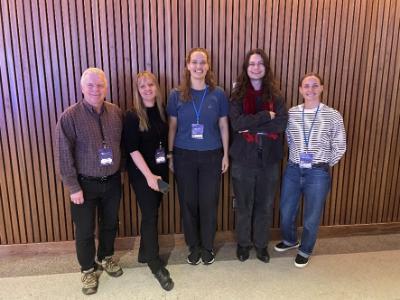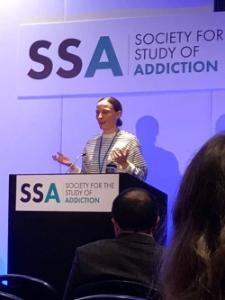Society for the Study of Addiction annual conference 2025, Newcastle
Written by Chris Stone
Five members of the University of Bristol’s Translational and Applied Research Group, covering all career stages in the group from PhD student to director, have attended the 141st annual conference of the Society for the Study of Addiction, held in Newcastle. The SSA’s annual conference is the UK’s foremost gathering of addiction researchers, policymakers, practitioners, and experts by experience. This was a highly relevant and very worthwhile conference, with a wide range of sessions covering topics such as the neuropsychology of addiction, monitoring of addictive behaviours and policy, tackling alcohol and gambling harms, public health aspects of no-/low-alcohol drinks, priorities and innovations in addiction research, capturing lived experience, predicting and preventing tobacco harm, and integrating substance use treatments into hospital care. A highlight was the Society Lecture given by Professor Trevor Robbins , former Head of Department of Psychology at the University of Cambridge, on the neural and psychological basis of compulsive drug-seeking.
The conference enabled dissemination of some of TARG’s recent work. Olivia Maynard gave a talk presenting the findings of a pilot investigation of vaping information provision for people attending lung health checks which supported the “Swap to Stop” initiative helping smokers switch to e-cigarettes, while Angela Attwood and Claire Garnett made poster presentations of their research. It also provided informal opportunities to network with other researchers; for example, many of those I spoke to showed great interest in the smartwatch-based smoking relapse intervention which has been developed in TARG, and one conference speaker in particular had carried out some recent work on making digital support tools that help people quit smoking both effective and user-friendly, involving ecological momentary assessment and use of machine learning algorithms – research which has a synergy with our current work on using motion capture to detect and identify lifestyle health-related behaviours – prompting a useful and timely conversation. There were many other opportunities over the two days to discover the current state of research into addiction and its behavioural aspects, thanks to the varied conference programme and the extensive array of poster presentations.


Attendance at this conference was supported by funding from Cancer Research UK under the Integrative Cancer Epidemiology Programme at the University of Bristol.
